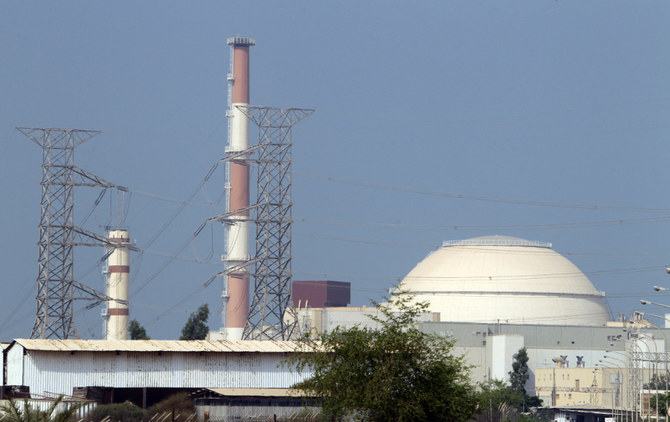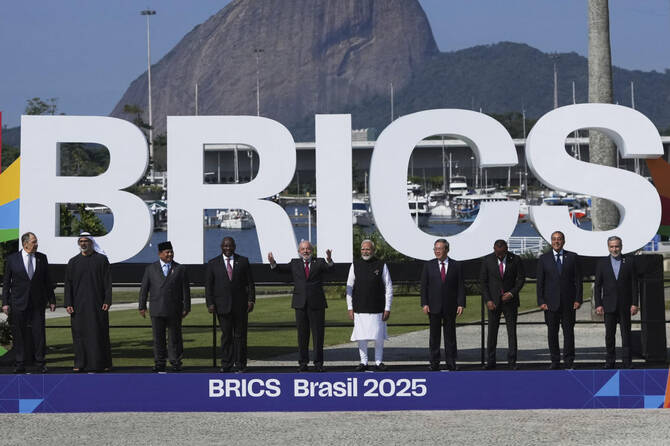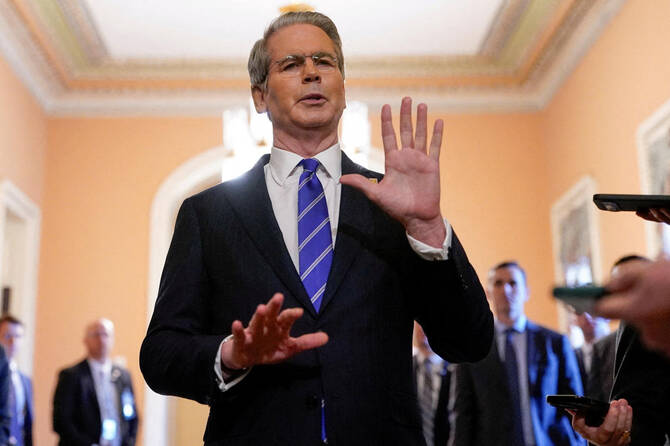PARIS: World powers and Iran return to Vienna on Monday in a last ditch effort to salvage the 2015 Joint Comprehensive Plan of Action, but few expect a breakthrough as Tehran’s atomic activities rumble on in an apparent bid to gain leverage against the West.
The US will also send a delegation, headed by Washington’s Special Envoy for Iran Rob Malley, to participate in the talks indirectly.
Israel worries Iran will secure sanctions relief in renewed nuclear negotiations with world powers, but will not sufficiently roll back projects with bomb making potential, Prime Minister Naftali Bennett said.
“Israel is very worried about the readiness to remove the sanctions and to allow a flow of billions (of dollars) to Iran in exchange for unsatisfactory restrictions in the nuclear realm,” Bennett told his Cabinet in televised remarks.
“This is the message that we are relaying in every manner, whether to the Americans or to the other countries negotiating with Iran.”
Few expect a breakthrough in the talks as Iran’s uranium enrichment activities have escalated in an apparent bid to gain leverage.
Diplomats say time is running low to resurrect the JCPOA, known as the Iran nuclear deal, which former US President
Donald Trump abandoned in 2018, angering Iran and dismaying the other world powers involved.
Six rounds of indirect talks were held between April and June.
The latest round begins after a hiatus triggered by the election of new Iranian President Ebrahim Raisi.
Tehran’s negotiating team has set out demands that US and European diplomats consider unrealistic.
Two European diplomats said it seemed Iran was simply playing for time to accumulate more material and know-how.
Western diplomats say they will head to Monday’s talks on the premise that they resume where they left off in June, and have warned that if Iran continues with its maximalist positions and fails to restore its cooperation with the International Atomic Energy Agency, then they will review their options.
Iran’s top negotiator and foreign minister both repeated on Friday that the full lifting of sanctions would be the only thing on the table in Vienna.
“If this is the position that Iran continues to hold on Monday, then I don’t see a negotiated solution,” said one European diplomat.
Iran has pressed ahead with its uranium enrichment program and the IAEA says its inspectors have been treated roughly and refused access to re-install monitoring cameras at a site it deems essential to reviving the deal.
“They are doing enough technically so they can change their basic relationship with the West to be able to have a more equal dialogue in the future,” said a Western diplomat involved in the talks.
Several diplomats said Iran was now between four to six weeks away from the “breakout time” it needs to amass enough fissile material for a single nuclear weapon, although they cautioned it was still about two years from being able to weaponize it.
Should the talks collapse, the likelihood is the US and its allies will initially confront Iran at the IAEA next month by calling for an emergency meeting.
Reuters






















